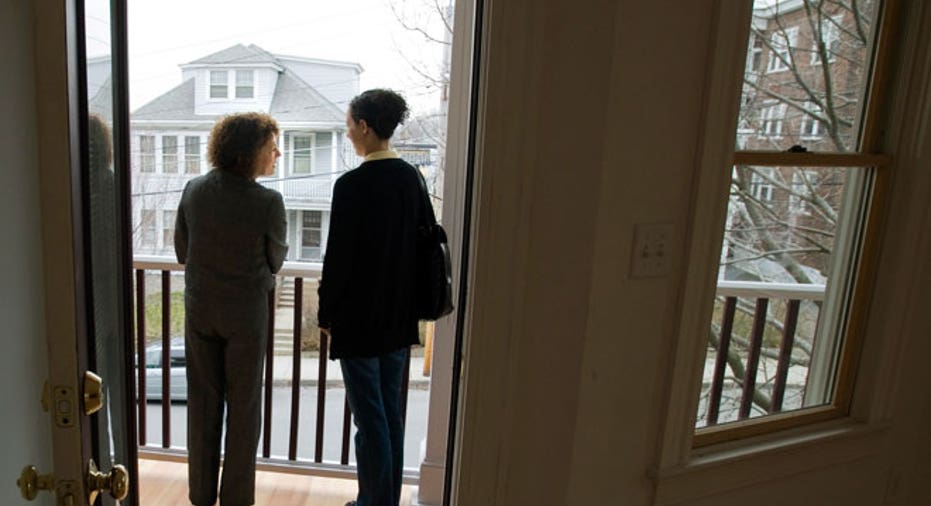Do You Own the Air Above Your Home?

Most of the time, you only hear about “air rights” in crowded urban centers, such as New York City, where vertical living is the norm and space is at a premium.
Still, every homeowner should have an understanding of air rights in general.
Do you own the air above your home by default? And if so, what can you do with those rights?
Most people own the air rights above their homes, up to a point.
In real estate, air rights, which refer to the empty space above a property, are one type of development right. Before the 20th century, anyone owning property also owned the unlimited air rights above it, as well as the ground beneath it. Then and now, most property ownership laws are based on the Latin doctrine, “For whoever owns the soil, it is theirs up to heaven and down to hell.” (For more about ownership of the ground beneath your house, see “Do You Own the Land Under Your Home?”)
But with the arrival of airplanes in the 20th century, air rights became more limited. Homeowners only had rights to the airspace above their home that they could reasonably use. This restriction was necessary; without it the airline industry would never have taken off because airplanes would be trespassing everywhere they flew.
Your air rights probably may not enable you to build higher.
Every town and/or neighborhood has zoning restrictions. Those restrictions generally prevent a homeowner from, say, building a small office high-rise on their property in a residential neighborhood, even though that homeowner owns the air rights to their property. Have a small home but want to go up a few stories? Zoning restriction will likely restrict you from building out too much, even though the air above is yours.
Air rights can have more significance in places like New York.
In dense urban areas such as New York City where there is high demand but limited land on which to build, air rights can have potential value. Not using the air above your building? A developer may acquire those rights to build out an adjacent property. This article from the New York Times lays out how a few lucky homeowners took advantage of the opportunity to sell their air rights.
Your air rights don’t necessarily have any market value.
But, even though the homeowners in the example above were able to cash in, doesn’t mean that the air above your property in NYC is valuable. The public often assumes “there is a market value for air rights in a particular neighborhood or zoning district, and that amount should be applied to the remaining buildable feet within the zoning envelope,” says Miller Samuel Inc. President and CEO Jonathan J. Miller.
“The reality is that the value of air rights is based on what options the adding property owners have if they were to acquire the rights,” Miller explains. “In other words, if the subject property has plenty of air rights to sell but none of the adjacent property owners are able to use them, then the seller has no one to sell them to. If the buyer needs to obtain a zoning variance first, then it would be risky to purchase the rights until the variance was secured.”
Air rights don’t mean you own your view.
Air rights don’t have any direct relationship to the views from your property (except maybe your skylight).
In a hilly, view-laden city like San Francisco, views aren’t protected. You may have a great view, but it could disappear if local zoning laws allow the owner of a vacant lot next door to build a McMansion. You may have some say in your neighbor’s construction project, however. In some cities and towns, neighbors are allowed to voice their concerns at a public hearing before any building permits are granted.
Not sure about views and air rights? Ask questions.
Are you uncertain about views or the air rights above or next to a home you want to purchase? Visit the local planning department. Ask them what can be built on the property you want as well as the adjacent properties, and ask about height restrictions.
When it comes to air rights, the bottom line is that you probably own them. But they’re only valuable if someone else can actually use them for development purposes.
Read More from Zillow:
- Do You Own the Land Under Your Home?
- Why Buyers Should Consider Short Sales or Foreclosures
- Don’t Be Fooled By These 3 Real Estate Myths
Brendon DeSimone is a Realtor, a nationally recognized real estate expert and author of the book “Next Generation Real Estate.” His practical advice is regularly sought out by print, online and television media outlets including FOX News, CNBC, USA Today, Bloomberg, FOX Business and Forbes. An active investor himself, Brendon owns real estate around the U.S. and abroad and is licensed to sell in California and New York. Consumers often call on Brendon for advice and to help them find a real estate agent. You can follow him on Twitter or Google Plus.
Note: The views and opinions expressed in this article are those of the author and do not necessarily reflect the opinion or position of Zillow.



















